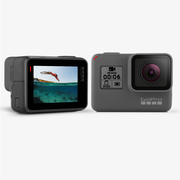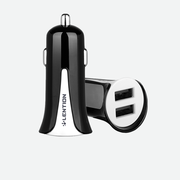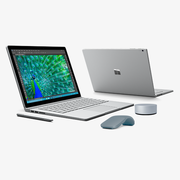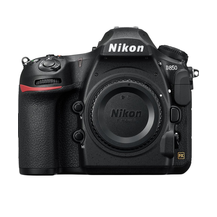Similar Products
Description
The camera shake icon that looks like a hand keeps flashing and will not go away. Whether the SteadyShot feature is turned on or not, the flashing warning icon appears when the camera chooses a shutter speed that may be too slow for the intended shot. The shutter speed chosen by the camera is in part due to the focal length of the lens and the ISO setting. It is simply an indication for you to be aware that the shutter speed being used may cause unintentional blur. This is normal operation. If the Steady Shot feature is turned on it is possible for the camera to use slower shutter speeds than when it is off. The actual shutter speed at which the icon begins flashing, however, depends on the focal length of the lens. At short focal lengths (wide angle) the icon flashes when a relatively slow shutter speed is selected. When shooting with a long focal length (telephoto) the icon begins flashing at faster shutter speeds. You can still take a picture even though the icon is displayed. However, since there is a chance of image blur, make sure you are holding the camera as still as possible or consider mounting the camera to a tripod. The icon appears most often when shooting in areas that do not have sufficient lighting. Therefore, selecting a higher ISO setting or using a flash may cause the camera to choose a faster shutter speed and prevent the icon from flashing. NOTES: The icon only flashes in the modes that automatically set the shutter speed. It does not appear when using the Shutter Priority (S) or Manual (M) mode. The background of a picture is dark and underexposed when using a flash. To avoid dark backgrounds when taking a picture of your subject, set the camera to use the Slow Sync flash mode. This setting illuminates your subject with the flash and keeps the shutter open a little longer (by slowing down the shutter speed) to allow ambient light to brighten the background. NOTES: • It is possible to take very good hand-held photos with the Slow Sync mode. However, since a slower shutter speed is used, the image is more susceptible to blur because of camera shake. Consider using a tripod if you experience unwanted blur when using the Slow Sync mode. • When using an external flash unit, another method of illuminating both foreground and background is to use bounce flash. This is done by tilting the flash head upwards to bounce the light from the ceiling. The pictures are too white or overexposed Depending on the mode with which you are shooting, overexposed pictures can normally be corrected by simply adjusting a few settings. First, if you are close to your subject and have not already done so, try shooting without the flash. If shooting in AUTO, Shutter Priority (S), Aperture Priority (A), Program (P), or one of the scene selection modes, decrease the exposure compensation. Although the camera automatically chooses the exposure value when shooting with these modes, sometimes certain lighting can cause the camera to select an insufficient setting. In these situations, you can override and lower the exposure value if necessary. When shooting in the Manual (M) mode, you have even more flexibility for correcting white, overexposed pictures. Try doing one or more of the following: 1. Use a lower ISO setting like 100 or 200. 2. Increase the shutter speed. 3. Close the aperture of the lens by using a higher f-stop number. Something else to keep in mind is the metering mode you are using; the metering mode is a method the camera uses to measure the brightness of a subject. You may want to consider using a different metering mode. • Multi segment: This mode divides the whole screen into multiple segments to measure light. It is suitable for general shooting, including shooting into direct sunlight. • Center weighted: While emphasizing the central area of the screen, this mode measures the average brightness of the entire screen. If you shoot directly into the sunlight or the subject is not in the center of the image, you may need to use exposure compensation. • Spot: This mode measures light only in the spot metering circle in the center of the frame. It is suitable for shooting a subject with strong contrast. NOTE: If model-specific information is required to complete any of the recommendations in this solution, refer to the operating instructions supplied with the product. Manuals, Specifications and Warranty information for your Sony product is available online. AVCHD video is not recognized or cannot be transferred to a Macintosh computer.p> Macintosh computers do not support AVCHD video recorded in 60p (1080 and 720). If you want to easily transfer video to a Mac, we recommend changing the recording format on the camera. Depending on the camera, you can change it to MP4 or AVCHD such as 24i, 60i, etc. Alternatively, you can manually copy videos recorded in 60p (1080 and 720) to your computer. Media converter software is available for Mac computers that may allow you to transfer video that was recorded in 60p. This software is available at Sourceforge website. IMPORTANT: • AVCHD video is only supported with iMovie 10.0 software or newer. It is recommended the iMovie software on the computer be updated to the newest version to ensure compatibility. • The computer requires an Intel Core Duo processor or better to support AVCHD video. • If both AVCHD and MPEG2 or MP4 formatted movies are recorded, the AVCHD movies may not be recognized. If this happens, import all the MP4 or MPEG2 movies to the computer and then delete them from the camera. Afterwards, disconnect and reconnect the USB cable so the AVCHD movies can be recognized. • Power Mac G5 does not support the AVCHD format.
20.1 MP Exmor APS-C sensor for great images
Mirror less DSLR - Compact Interchangeable Lens camera system
Quick Wi-Fi connectivity to smartphones via NFC
Model: ILCE5000L/W
Features
Video

























































